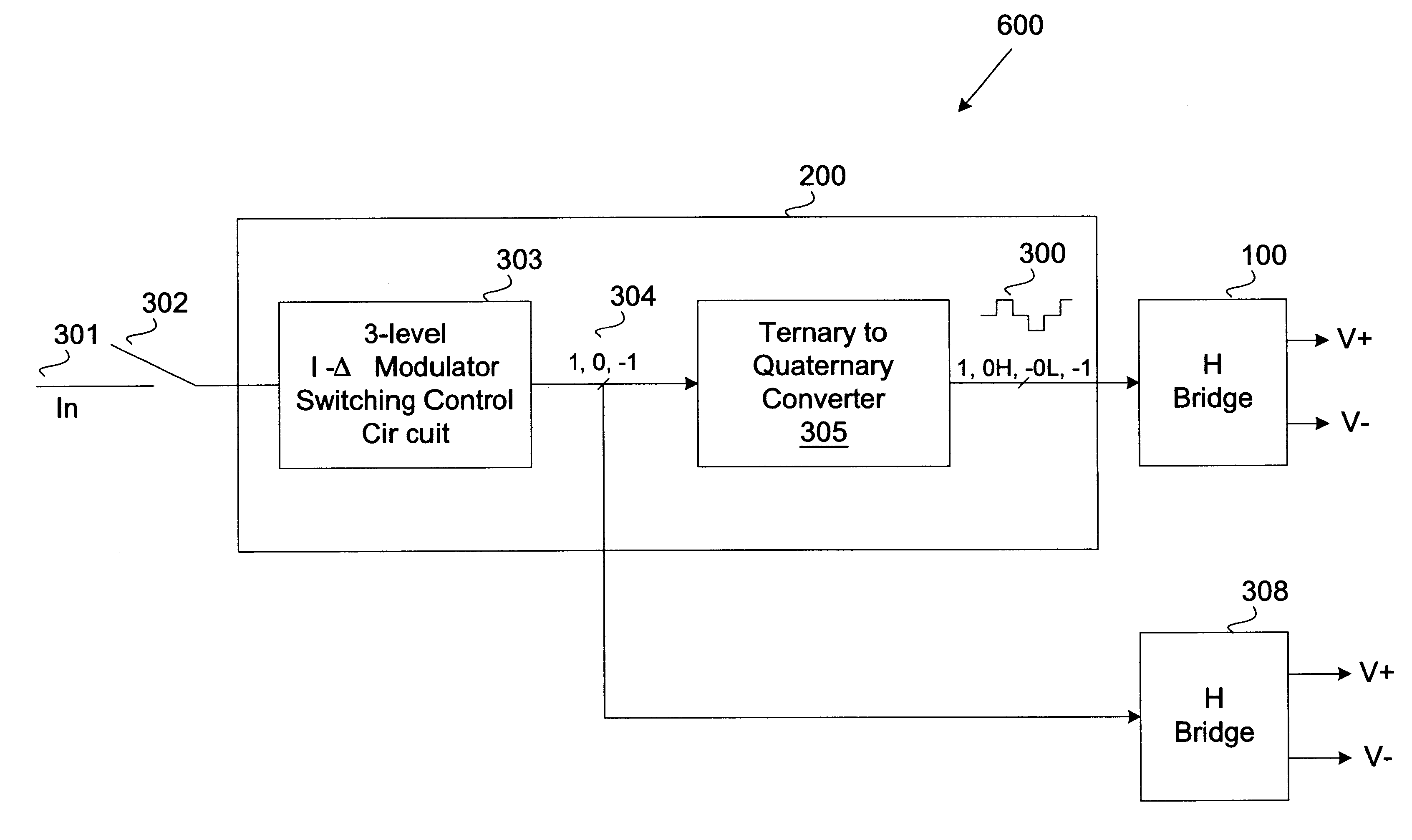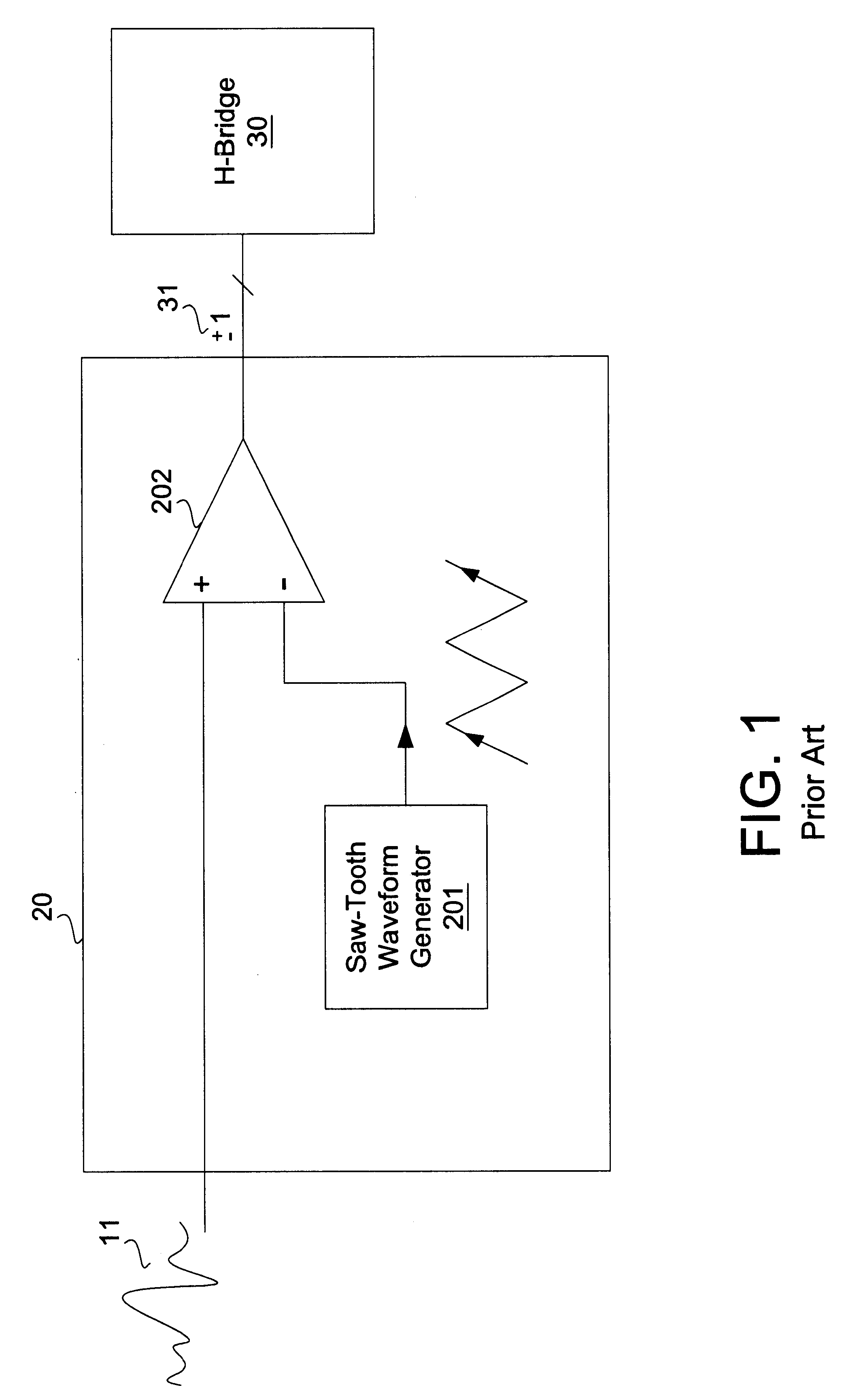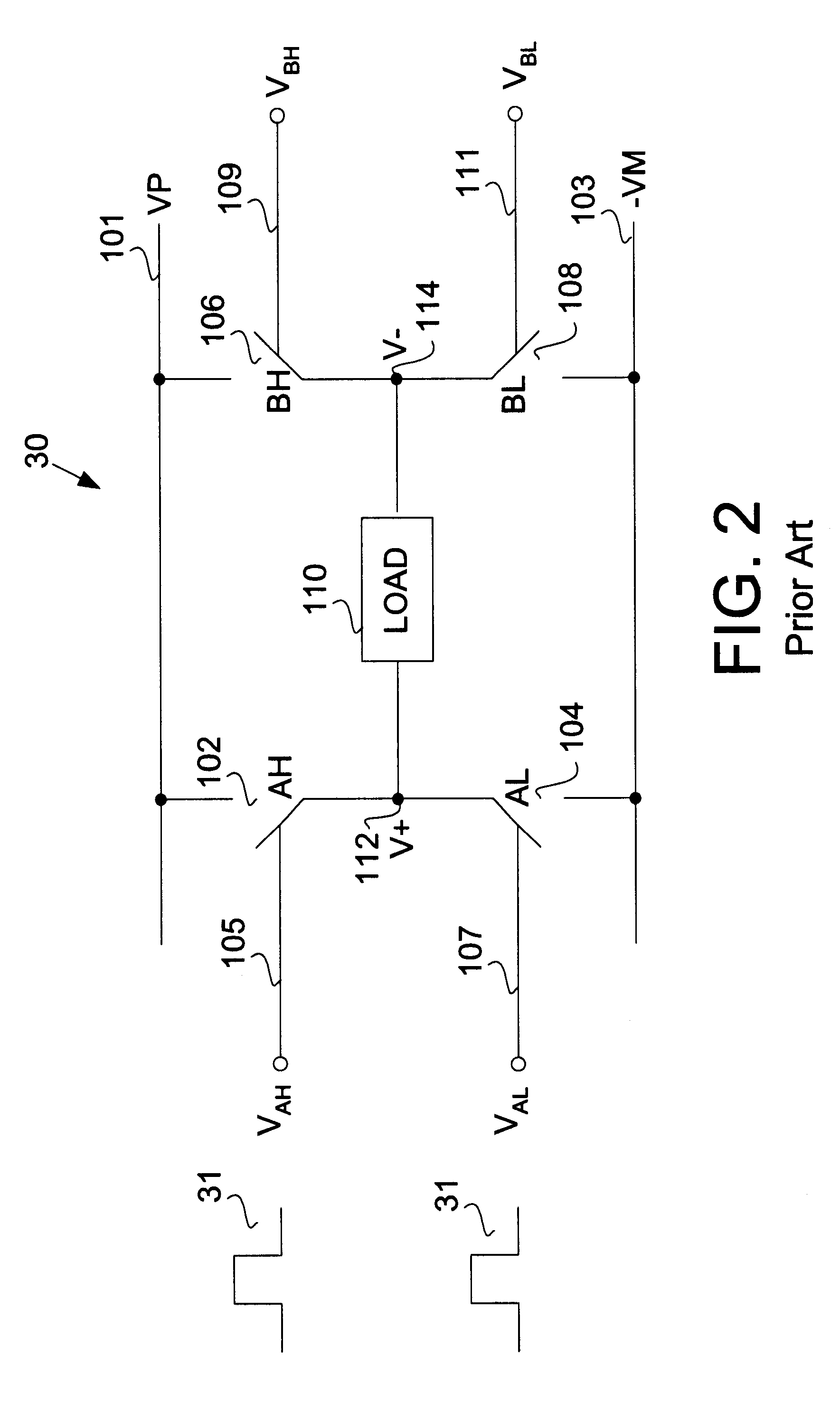Switching amplifier incorporating return-to-zero quaternary power switch
a technology of quaternary power switch and switching amplifier, which is applied in the direction of amplifiers, dc amplifiers with modulator-demodulator, semiconductor devices/discharge tubes, etc., can solve the problems of h-bridge, h-bridge is typically used, and the integration level is not optimal
- Summary
- Abstract
- Description
- Claims
- Application Information
AI Technical Summary
Benefits of technology
Problems solved by technology
Method used
Image
Examples
Embodiment Construction
)
An improved switching amplifier incorporating return-to-zero quaternary power switch 600 as illustrated in FIG. 6 comprises a switch control circuit 200 and an H-bridge circuit 100 implementing quaternary switch control signal 300 in accordance with the principles of this invention. Switch control circuit 200 produces a quaternary output signal 300 comprising four states (+1, 0H, -1, and 0L ), otherwise referred herein as "quaternary states", as will later be explained in further detail. Quaternary state signal 300 is used to control the output H-bridge 100. Switch control circuit 200 can comprise a digital circuit if its input signal 301 comprises a digital waveform, or an analog and digital circuit combination if input 301 is an analog waveform. The operational principle of this invention remains the same in both cases. If switch control input signal 301 is an analog signal waveform, switching amplifier 100, also referred to herein as an H-bridge circuit comprises a traditional C...
PUM
 Login to View More
Login to View More Abstract
Description
Claims
Application Information
 Login to View More
Login to View More - R&D
- Intellectual Property
- Life Sciences
- Materials
- Tech Scout
- Unparalleled Data Quality
- Higher Quality Content
- 60% Fewer Hallucinations
Browse by: Latest US Patents, China's latest patents, Technical Efficacy Thesaurus, Application Domain, Technology Topic, Popular Technical Reports.
© 2025 PatSnap. All rights reserved.Legal|Privacy policy|Modern Slavery Act Transparency Statement|Sitemap|About US| Contact US: help@patsnap.com



